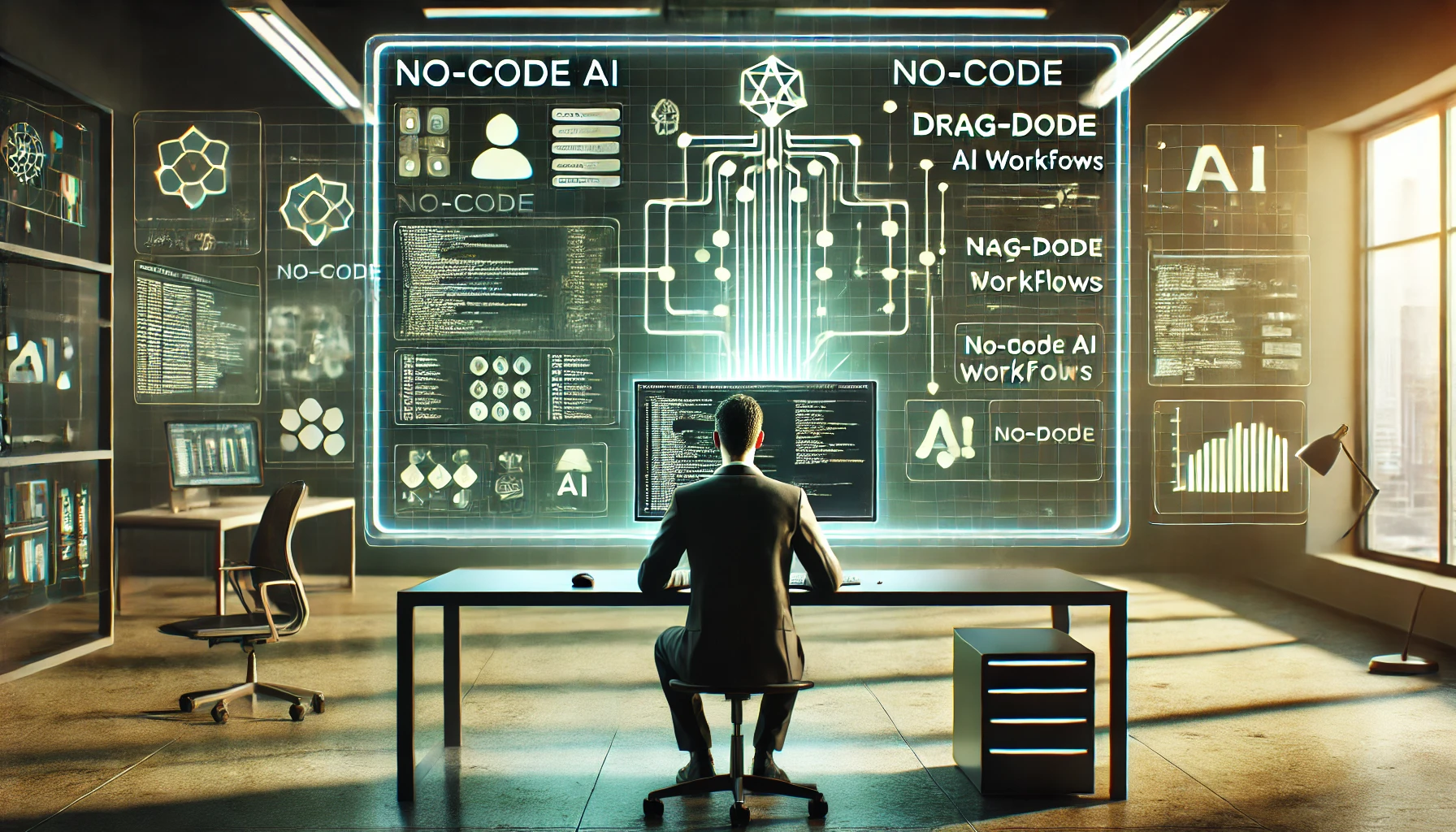Empowering people
In a world where negativity often dominates the headlines, it’s easy to overlook the numerous positive impacts that artificial intelligence (AI) is having on our lives. While there’s no shortage of warnings about AI’s potential dangers, this article takes a different approach, highlighting how AI is empowering individuals in practical and meaningful ways. From expanding access to knowledge to improving our health and streamlining daily tasks, AI is helping people take control of their lives. Let’s explore the many ways AI is enhancing personal freedom and opportunity.
Expanding Access to Knowledge and Opportunity
One of the most significant benefits of AI is how it has made knowledge, wisdom, and intelligence more accessible than ever before. Gone are the days when only those with resources or living in certain areas had access to quality information. Today, anyone with an internet connection can tap into a vast reservoir of knowledge, thanks to AI.
Access to Education and Skills
With platforms like Coursera, Khan Academy, and edX, AI has made it easier for individuals to learn new skills on their own terms. These platforms use AI to personalise learning experiences, tailoring the content to fit each person’s pace and style. Whether you’re in a bustling city or a remote village, you can learn to code, pick up a new language, or study history—often for free.
Moreover, AI-driven tools like Duolingo have revolutionised language learning, making it accessible and enjoyable. The app adapts lessons to your progress, ensuring that you’re neither bored by repetition nor overwhelmed by complexity. It’s like having a personal tutor that works on your schedule.
Starting Your Own Business
The power of AI in business is transformative, especially for those looking to forge their own path. With just a smartphone, a laptop, and a Wi-Fi connection, anyone can start an eCommerce business. AI tools like Shopify’s business advisor guide you through setting up an online store, choosing the right products, and marketing them effectively—all without the need for large investments.
Language barriers, once a significant hurdle, are also being dismantled. AI-powered translation tools, such as Google Translate and DeepL, enable seamless communication across languages, opening up global markets for your products or services. Imagine running a successful online store from a small town and selling products to customers worldwide, all thanks to AI.
Revolutionising Travel
AI is transforming travel, making it more personalised and accessible. From planning trips to navigating foreign languages, AI is putting more control in the hands of travellers.
Instant Translation
Imagine travelling to a country where you don’t speak the language. In the near future, AI-powered earbuds will enable you to communicate effortlessly by translating spoken language in real-time. This technology will not only make travel more enjoyable but also open up new opportunities for business and personal connections across borders.
Personalised Travel Itineraries
Planning a holiday can be stressful, but AI can take care of the details for you. You can ask AI to create a personalised itinerary based on your preferences, including accommodation, sightseeing, and activities. Tools like Google Travel already use AI to suggest the best flights, hotels, and attractions, tailoring recommendations to your interests and budget. Imagine an AI travel assistant that knows your preferences and crafts a perfect trip, from restaurant reservations to exclusive experiences.
Enhancing Health and Well-being
AI is revolutionising healthcare by making it more efficient and personalised, putting health management directly into the hands of individuals.
Personalised Health Monitoring
Wearable devices like the Apple Watch and Fitbit are changing how we monitor our health. Powered by AI, these devices track vital signs such as heart rate, sleep patterns, and activity levels, providing personalised insights and recommendations. For example, if your heart rate is consistently high, your device might suggest relaxation techniques or a visit to your doctor.
AI is also aiding in the early detection of diseases. Tools like SkinVision allow you to take a photo of a mole or skin lesion, and AI analyses it for signs of skin cancer. Early detection is crucial for effective treatment, and AI is making it more accessible and affordable.
Virtual Health Assistants
AI-powered virtual health assistants like Ada and Babylon Health are revolutionising how we manage our health. These apps allow you to input symptoms, and AI will analyse them to suggest possible conditions and recommend whether you should see a doctor. While they don’t replace professional medical advice, they empower you to make informed decisions about your health, reducing unnecessary visits to healthcare facilities.
AI in Home and Garden
AI is extending its benefits to our homes and gardens, making daily tasks more manageable and enjoyable.
Smart Plant Care
If you love plants but struggle to keep them alive, AI can help. Apps like Planta use AI to provide personalised care instructions based on the species, your local climate, and even the specific conditions in your home. You can ask the app which plants thrive in moderate light and require minimal maintenance, and it will suggest options like the resilient snake plant or the low-maintenance pothos.
If a mystery plant appears in your garden, AI can help identify it. Simply take a photo with an app like PlantSnap, and AI will tell you what it is. This can be particularly useful if you’re concerned about safety, especially if you have pets or children.
AI-Powered Garden Design
Designing a garden can be a daunting task, but AI can assist by creating a design based on your space, climate, and preferences. For example, you can input the dimensions of your garden, specify that you want a low-maintenance design with space for a vegetable patch, and AI will generate a detailed plan. You can even ask for recommendations on which plants to choose and where to place them for optimal growth.
Culinary Adventures with AI
AI is transforming the kitchen, making cooking easier and more enjoyable, regardless of your skill level.
Meal Planning and Recipe Suggestions
Imagine opening your fridge, seeing a random assortment of ingredients, and having no idea what to cook. AI can help! Apps like Chef Watson (developed by IBM) can suggest recipes based on the ingredients you have. Simply input what’s in your fridge, and AI will generate meal ideas, complete with recipes and cooking instructions. This not only reduces food waste but also helps you discover new dishes you might never have thought to try.
Tailored Nutrition Plans
For those with specific dietary needs, AI can create personalised meal plans that cater to your preferences and health goals. Whether you’re vegan, gluten-free, or on a low-carb diet, AI can generate meal plans that ensure you’re getting the nutrients you need while enjoying tasty food. Apps like Nutrifix use AI to analyse your dietary preferences and health data to suggest meals that are both nutritious and delicious.
AI as a Creative Partner
AI is becoming a creative partner, helping artists, writers, and musicians explore new possibilities and push the boundaries of their work.
AI-Generated Art and Music
AI is increasingly being used to create art and music, often in collaboration with human artists. Tools like DeepArt and Runway ML allow artists to experiment with new styles and techniques, generating unique pieces of art. Musicians can use AI to compose original music, providing inspiration or even entire compositions. For example, AI-generated music can serve as a starting point for a new creative project.
AI and Environmental Sustainability: Empowering Ecological Living
As more individuals seek to live in harmony with the environment, AI is emerging as a powerful tool to support sustainable and self-sufficient lifestyles. Whether it’s through optimizing resource use, enhancing food production, or protecting local ecosystems, AI offers innovative solutions that enable individuals to reduce their ecological footprint while increasing their self-reliance.
Sustainable Agriculture and Gardening
AI is revolutionising sustainable agriculture, making it easier for individuals to grow their own food with minimal environmental impact. For example, AI-powered apps can analyse local soil conditions, weather patterns, and water availability to recommend the best crops to grow in your garden. These tools can help you plan a thriving vegetable garden that requires less water and fertiliser, reducing your dependence on industrial agriculture.
For those interested in permaculture or organic farming, AI can provide personalised guidance on implementing these practices effectively. Imagine an AI assistant that helps you design a food forest in your backyard, suggesting plant combinations that enhance biodiversity, support local wildlife, and improve soil health—all while producing a steady supply of fruits, vegetables, and herbs for your household.
Optimising Energy Use
AI is also making it easier to manage and reduce energy consumption, which is a critical component of sustainable living. Smart home systems powered by AI can monitor your energy use in real-time, offering suggestions on how to reduce waste and improve efficiency. Whether it’s by automating your home’s heating and cooling systems based on occupancy and weather patterns, or by optimising the use of renewable energy sources like solar panels, AI can help you achieve greater energy independence while lowering your carbon footprint.
Protecting Local Ecosystems
For those dedicated to preserving local ecosystems, AI can serve as an invaluable ally. AI-powered drones and cameras can monitor the health of nearby forests, rivers, and wildlife, providing real-time data that can guide conservation efforts. Whether you’re managing a small plot of land or a larger community garden, AI can help you protect and enhance the natural environment around you.
In addition, AI can assist in identifying and combating invasive species that threaten local biodiversity. By analysing patterns in plant and animal populations, AI can predict the spread of invasive species and suggest effective, environmentally friendly strategies for controlling them. This proactive approach not only preserves the ecological balance but also supports a more sustainable way of living.
Water Conservation and Management
Water is a precious resource, and AI is helping individuals manage it more effectively. AI-powered irrigation systems, for example, can monitor soil moisture levels and weather forecasts to deliver just the right amount of water to plants, reducing waste and ensuring that water is used efficiently. This technology is especially valuable in regions where water scarcity is a concern, enabling people to maintain productive gardens and farms with minimal impact on local water supplies.
Furthermore, AI can assist in rainwater harvesting and greywater recycling, providing guidance on how to collect and use water sustainably in your home and garden. By optimizing these processes, AI helps you conserve water, reduce reliance on municipal supplies, and create a more self-sufficient living environment.
The Future of AI: A World of Possibilities
The examples above are just a glimpse of AI’s potential to enhance our lives. As AI continues to evolve, we can expect even more innovations that will empower individuals to live more freely, creatively, and independently. Whether it’s through enhancing personal health, enabling new forms of expression, or helping us solve everyday challenges, AI offers a world of possibilities.
Summarising, while it’s important to consider the ethical implications and potential risks of AI, it’s equally crucial to recognise and celebrate the positive impacts AI is already having. By embracing AI and using it wisely, we can harness its power to create a better, more empowered future for everyone. So next time you hear a negative story about AI, remember—there’s another side to the story, one full of opportunity and potential.




